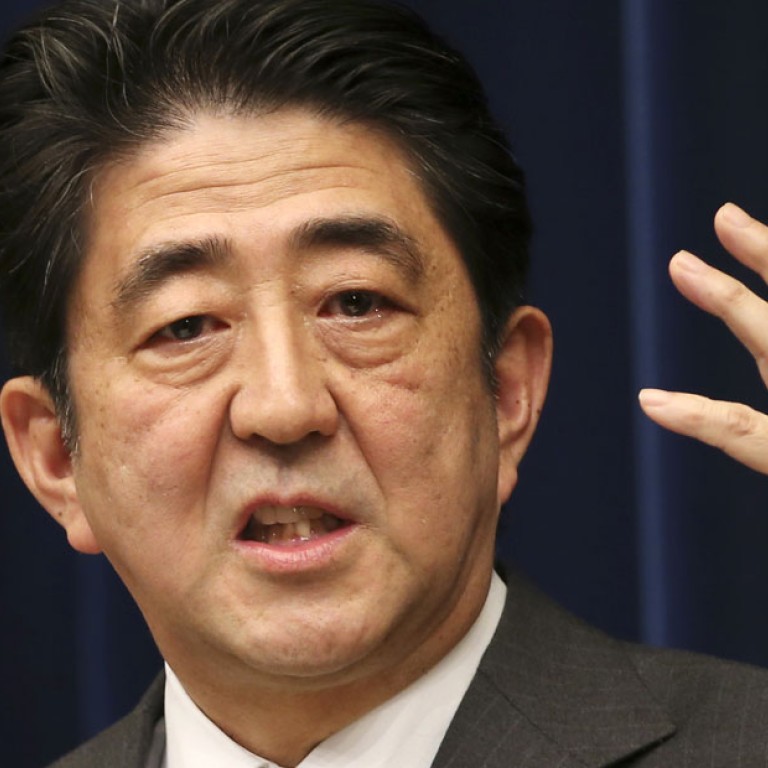
Absent China to dominate the agenda at three-day Japan-Asean summit
Japan-Asean meeting likely to focus on rising military tension, with Tokyo cosying up to bloc in bid to be a counterbalance to Beijing
When leaders from Japan and Southeast Asia gather in Tokyo today, the elephant in the room will be a nation that is not invited: China.
Its rise as a military power has long sparked concern in Asia, and tensions spiked last month when China announced a new air defence zone straddling islands also claimed by Japan in the East China Sea.
It’s going to be about the anxieties China has stirred about its ambitions
China, despite being a major trade partner and investor in Southeast Asia, is also locked in territorial rows with several other Asian nations over wide stretches of the South China Sea and has said it might set up a similar air defence zone there.
Japan, which has in recent years stepped up private sector investment in Association of Southeast Asian Nations member countries as an alternative to an unpredictable and risky China, now wants to draw closer to the grouping on the security front as a counterbalance to Beijing.
"It is very important to show our big neighbour in Asia the mainstream is free markets, democracy, human rights," said a Japanese government official familiar with diplomatic strategy.
"This is the future. This is the message to be sent from the summit."
The meeting with the 10-member Asean will include expanded currency-swap deals and fresh aid offers, such as a post-typhoon loan to the Philippines of US$97 million.
Asean comprises Brunei, Cambodia, Indonesia, Laos, Malaysia, Myanmar, the Philippines, Singapore, Thailand and Vietnam. Japanese Prime Minister Shinzo Abe, elected a year ago next week, has visited the leaders of all 10 Asean countries but has yet to arrange a summit with China or South Korea, two countries with whom Japan has rancorous territorial disputes.
Japan typically meets Asean nations in conjunction with China and South Korea, but the Tokyo summit starting today is meant to commemorate Japan's 40-year ties with the group and does not include the usual "Asean+3" participants.
The intent is not to exclude China, Japan insists. But maritime disputes and China's air zone "would definitely be discussed", as Japan has put them on the agenda, a senior Philippines diplomat said.
China said last month it would take "defensive emergency measures" against aircraft that flew through its unilaterally declared air defence zone without identifying themselves to Chinese authorities. China later said it would not harass commercial aircraft, and US and Japanese military craft have overflown the area without incident.
But China's sudden move has put many Asian nations on edge.
"Beijing has set the agenda for the Asean-Japan summit: it's going to be about the collective anxieties that China has stirred about its regional ambitions," said Jeffrey Kingston, director of Asian studies at Temple University's Tokyo campus. "[Abe's] regional diplomacy has focused on trying to forge solidarity with Southeast Asia vis-à-vis what is seen as a threatening China, and China has done him a great favour by playing the part of the plausible bogeyman."
But a senior official at the Myanmese president's office shrugged off the idea.
"I don't think this summit is meant to counter China just because China is not involved in it," he said. "There are similar summits between the Asean and China, India or South Korea."
A draft statement for the leaders "stresses the importance of freedom of flight through airspace over the high seas, as recognised by international law", and pledges co-operation at the United Nations civil-aviation body, where Japan has aired its concerns over China's air zone.


